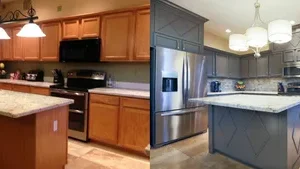Picture this: You’re at a networking event, deep in conversation with a potential client who could transform your career. The moment comes to exchange contact information, and you reach into your pocket only to realize—you’re out of business cards. Again. We’ve all been there, fumbling with our phones, typing numbers into contacts while the other person waits awkwardly. But what if I told you there’s a better way that eliminates this problem forever?
Enter the digital business card—a modern solution that’s revolutionizing how professionals connect in today’s fast-paced world. It’s not just about keeping up with technology; it’s about working smarter, making lasting impressions, and staying ahead in an increasingly digital marketplace.
The Evolution of Professional Networking
Remember when exchanging business cards was the gold standard of professional networking? Those small rectangles of cardstock were your ticket to new opportunities. But times have changed dramatically. We live in a world where smartphones are extensions of ourselves, where virtual meetings happen across continents, and where sustainability matters more than ever before.
Traditional paper business cards, while nostalgic, come with significant limitations. They get lost in jacket pockets, damaged in wallets, and often end up in the trash. More importantly, they represent a static snapshot of your professional identity that becomes outdated the moment your phone number or job title changes. The modern professional needs something more dynamic, accessible, and aligned with how we actually communicate today.
What Exactly Is a Digital Business Card?
A Digital Business Card UK is an electronic version of your professional contact information that lives on your smartphone and can be shared instantly through various digital channels. Think of it as your professional identity in app form—but so much more powerful than that simple description suggests.
Unlike their paper predecessors, digital business cards can include your phone number, email address, website, social media profiles, portfolio links, and even video introductions. They can be shared through QR codes, text messages, email, NFC technology, or social media platforms. Services like HiHello, CamCard, Linq, Adobe Express, and Blinq have made creating and managing these cards incredibly simple, even for those who aren’t particularly tech-savvy.
The beauty of digital business cards lies in their versatility. Whether you’re using a dedicated app, a digital wallet feature, or a simple vCard file, you’re essentially carrying an unlimited supply of contact cards that never run out and never need reprinting.
Cost-Effectiveness That Makes Business Sense
Let’s talk money—because every professional understands the value of a good investment. Traditional business cards require constant reordering. Every time you change jobs, get promoted, move offices, or switch phone numbers, those boxes of cards become expensive paperweights. The average professional might spend anywhere from $50 to $200 annually on business card printing and reprinting.
Digital business cards typically cost nothing or involve a small one-time fee or minimal monthly subscription. Many platforms offer free versions with basic features, while premium options rarely exceed $10-15 monthly. Even better, updates are instant and free. Changed your email address? Updated in seconds. Got a new position? Reflected immediately across all previously shared cards.
Beyond the direct savings, consider the hidden costs of paper cards: rush printing fees when you run out before an important conference, shipping charges, storage space, and design revisions. Digital solutions eliminate all these expenses while providing superior functionality. For freelancers, small business owners, and corporate teams alike, this cost-effectiveness is compelling.
Instant Updates Keep You Current
One of the most frustrating aspects of traditional business cards is their permanence. Once printed, they’re frozen in time. But your career isn’t static—it evolves, grows, and changes direction. Digital business cards solve this problem elegantly with real-time updating capabilities.
Imagine you’ve handed out 200 paper cards over three months, then you get promoted or your company rebrands. With traditional cards, those 200 contacts have outdated information. With a digital card, you update once, and everyone who received your card automatically sees the current information. It’s like having a direct line to everyone you’ve ever networked with.
This feature proves invaluable for professionals in transitional career phases, those building personal brands, or anyone working in fast-moving industries. Real estate agents, recruiters, consultants, and entrepreneurs particularly benefit from this flexibility. Your professional identity stays current without requiring constant communication updates to your entire network.
Environmental Impact Matters
Sustainability isn’t just a buzzword—it’s a responsibility that increasingly matters to businesses and individuals alike. The paper business card industry produces billions of cards annually, with studies suggesting that up to 88% of traditional business cards get thrown away within a week of being received. That’s a staggering amount of waste.
Digital business cards eliminate paper waste entirely. No trees cut down, no toxic printing inks, no transportation emissions from shipping physical cards. For environmentally conscious professionals and companies committed to reducing their carbon footprint, this represents a meaningful step toward sustainability goals.
Many organizations now include environmental initiatives in their corporate social responsibility programs. Adopting digital business cards demonstrates this commitment tangibly. It’s a small change that makes a statement about your values and your company’s priorities. In an era where consumers and partners increasingly factor environmental practices into their business decisions, this matters more than you might think.
Security and Privacy Control
With growing concerns about data privacy and security, digital business cards offer superior control compared to their paper counterparts. Once you hand someone a traditional business card, you have zero control over what they do with your information—they could share it, sell it, or use it inappropriately.
Global Accessibility Breaks Down Barriers
In our interconnected global economy, professionals frequently interact with contacts across different countries, time zones, and languages. Digital business cards excel in these international contexts where traditional cards face significant limitations.
Versatility Across Industries and Roles
The benefits of digital business cards extend across virtually every profession and industry, though they manifest differently depending on your specific role and sector. This versatility makes them valuable whether you’re a corporate executive, freelancer, creative professional, or service provider.
Making the Transition: Getting Started
If you’re convinced that digital business cards make sense for your professional life, getting started is refreshingly simple. The barrier to entry is low, and you can begin experimenting today without significant time or financial investment.
Start by exploring popular platforms like HiHello, CamCard, Linq, or Blinq. Many offer free tiers that provide core functionality—perfect for testing whether digital cards work for your networking style. Alternatively, if you’re in the Apple ecosystem, explore the built-in Contact Poster feature in iOS, or for Android users, check out Google’s People app functionality.
Overcoming Common Hesitations
Despite the clear benefits, some professionals hesitate to adopt digital business cards due to various concerns. Let’s address the most common objections directly because understanding and overcoming these hesitations is part of making informed decisions.
“What if people don’t have smartphones?” This concern is increasingly outdated—smartphone penetration among professionals in developed economies exceeds 90%. However, most digital card platforms offer backup options like email sharing or printable QR codes for those rare situations.
“I don’t want to seem impersonal.” Actually, digital cards often facilitate more personal connections because they can include photos, videos, and links to your work—elements that convey personality far better than generic paper cards. The interaction of sharing them can also be warmer and more engaging.
The Competitive Advantage
In competitive professional environments, small differentiators accumulate into significant advantages. Digital business cards provide multiple edge factors that compound over time to enhance your professional trajectory.
The networking efficiency gains alone translate into more meaningful connections in less time. When you can share contact information instantly with dozens of people at an event, follow up promptly while you’re fresh in their memory, and maintain updated information effortlessly, you’re simply more effective at building and maintaining professional relationships.
Real-World Success Stories
The theoretical benefits of digital business cards become even more compelling when you see them in action. Professionals across industries report transformative impacts on their networking effectiveness and career outcomes.
Conclusion
The question isn’t really whether digital business cards are better than traditional ones—the advantages are clear and compelling across virtually every dimension. The real question is what you’re waiting for.
Digital business cards represent more than just a technological upgrade; they embody a fundamental shift in how professionals connect, share information, and maintain relationships in our increasingly digital world. They save money, save time, protect the environment, enhance your professional image, and provide networking capabilities that traditional cards simply cannot match.
Frequently Asked Questions
Are digital business cards as professional as traditional paper cards?
Absolutely. In fact, digital business cards are increasingly viewed as more professional because they demonstrate technological fluency and modern thinking. They show you’re forward-thinking and adaptable—qualities valued in today’s business environment. Many professionals report that sharing a digital card creates a more memorable impression than exchanging traditional paper cards.
Can I have multiple digital business cards for different roles?
Yes, and this is actually one of the significant advantages of digital cards. Most platforms allow you to create and maintain multiple cards for different contexts—one for your primary job, another for side work, one for volunteer activities, etc. You can easily switch between them and share the appropriate card based on the situation, something impossible with traditional paper cards unless you carry multiple stacks.
How secure is my information on a digital business card?
Reputable digital business card platforms employ robust security measures including data encryption, secure cloud storage, and compliance with privacy regulations like GDPR and CCPA. Your information is typically more secure than paper cards, which can be lost, stolen, or copied by anyone. Many platforms also offer privacy controls that let you limit what information is visible and even revoke access to cards you’ve shared if circumstances change.
Do digital business cards work internationally?
Yes, Digital Business Cards actually work better internationally than traditional cards. They can include information in multiple languages, display phone numbers with proper international formatting, accommodate multiple currency or address formats, and use universally understood sharing methods like QR codes that transcend language barriers. They’re ideal for professionals who travel or work with international contacts.



